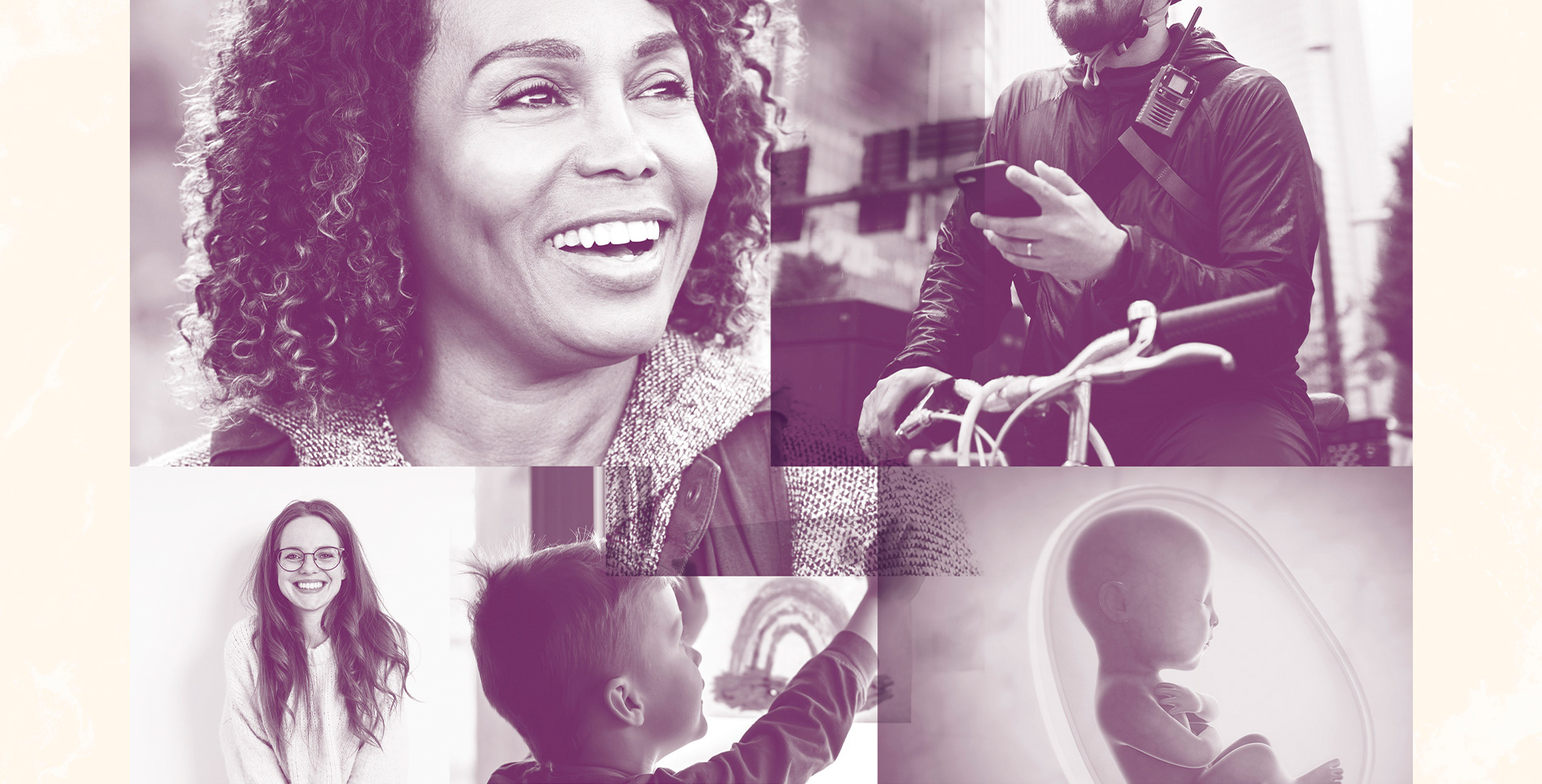Christians believe strongly in the sanctity of human life. It’s woven into the Bible’s narrative, from the very beginning, where we see Moses describe the origin of life in the most descriptive of ways. Most of creation is spoken into existence by the word of the Lord, but the text of Genesis then pauses to draw out the way in which God crafted human bodies and souls.
We read that the entire Godhead was involved: Let us make man in our image. We read language of care: God making Adam from the dust of the ground and breathing into him the breath of life. King David goes further, describing in Psalm 139 how God molds each baby in the womb, assigns them personhood, and ascribes to each a special, God-given purpose.
The Christian tradition is the only religion in the world that gives such a breathtaking view of humanity. Even cultures that are increasingly antagonistic toward Christianity unconsciously borrow their sense of justice and dignity from the Bible’s vision of what it means to be human.
Imago Dei and Christian imperatives
The rich theology of the imago Dei then offers Christians several imperatives, both for how we see ourselves and how we see the world.
First, it reminds us that we are not our own. At its most basic level, the Christian gospel is telling human beings that they were created by a loving Father, from whom they’ve been alienated by their own sin and who sent Jesus to rescue them from eternal death and reunite them to himself. To be created means we are not self-created. It means the world doesn’t revolve around us. It means we are not, contrary to pop spirituality, “The masters of our own fates, the captains of our own souls.” We belong to someone.
Secondly, understanding the imago Dei changes the way we see our neighbors. There are no disposable people in God’s economy. Every human being has dignity and worth. This should shape our posture in the world. It means we should think long and hard about difficult ethical issues and, as redeemed image-bearers, actively advocate for policies that respect the dignity of our fellow image-bearers. We will, of course, disagree on the best approaches toward alleviating the suffering of our neighbors and the feasibility and wisdom of policy proposals, but our disposition toward the vulnerable should be one of advocacy, care, and love.
How should we advocate for the vulnerable?
So how do we do this in a world that presents so many competing visions for human flourishing and so many opportunities to speak up for human dignity? How do we adopt an effective whole-life, pro-life posture?
Here are a few suggestions:
1. Refuse to engage in a zero-sum game.
We live in a world that wants to trade one set of vulnerable people’s lives for another. The internet is full of these ridiculous arguments, where advocacy for one group is met by advocates of another group, as if to say that one has more dignity than the other. But advocating for humanity dignity does not mean one set of people wins while another loses. We should do all we can to ensure the flourishing of all of our neighbors.
2. Resist the urge to turn “whole-life” into a weapon.
Quite often, those who, like me, advocate for a holistic human dignity perspective are tempted to wield this over and against folks who might concentrate on one particular area. This is most commonly used against those who have labored, for decades, in advocating for unborn human life.
The “if you were really pro-life” canard is used not to welcome folks into support for efforts on behalf of other vulnerable groups, but to shame people away from their support for the unborn, the most defenseless humans in society today. If the “whole-life” position is simply a way of shaming people on social media, motivations should be evaluated: Is this truly a matter of conviction or a way to score easy digital wins?
3. Remember that you can be an ally without being a professional advocate.
There are some whose life calling requires them to speak to a range of human dignity issues, but for many, their belief in the imago Dei pulls them toward one particular focus. For example, it’s good that there are Christians who have dedicated their whole lives to disease eradication or relief in developing countries. This narrow focus allows them to be good at what they do. That’s a very different—but no more or less noble—calling than someone who has devoted their whole life to legal challenges to ending abortion. I don’t expect the relief worker to testify on Capitol Hill about third-trimester viability, nor do I expect the pro-life advocate to understand the nuances of water sustainability in the sub-Sahara.
There are special gifts, callings, and abilities because God has gifted the church in multiple ways. What we can do, however, is find allies. We can support those who engage in different callings without questioning their human dignity bonafides or accusing them of partisanship.
4. Rejoice in your own vulnerability.
A whole-life, pro-life vision should also remind us of our own vulnerability. We often see ourselves as the Good Samaritan in the parable Jesus told to the religious leaders, but we should also see ourselves as the man on the side of the road. We were vulnerable when Jesus visited us and restored us to spiritual health. Understanding our own vulnerability makes us humble advocates who work to build coalitions to help the vulnerable, rather than would-be social media prophets who wield human dignity as a weapon to beat up others.
Vulnerability is also a check against a “save-the-world” activism that has us looking in the mirror every day and seeing the next hero. Ultimately, we should recognize that our ability to advocate, to speak up, and to work with our hands is only a small part of what God is already doing in the world through Christ to redeem and restore. This is not our mission. We are joining his mission. We can’t usher in the kingdom by our tweets, press releases, books, and advocacy. In the end, the good we do—however much—is only a tiny pinprick of light that shows the world a glimpse of the much better world to come.
A theology of human dignity, threaded throughout the Scriptures and embedded in the gospel narrative of Christ’s life, death, and resurrection, should shape the way we see ourselves and the world. It should motivate us to use our time, talents, and treasures to serve as ambassadors of God’s giving, by both sharing the good news that God offers salvation to those who confess Jesus as Lord and by demonstrating with our lives the ethics of God’s new kingdom.










